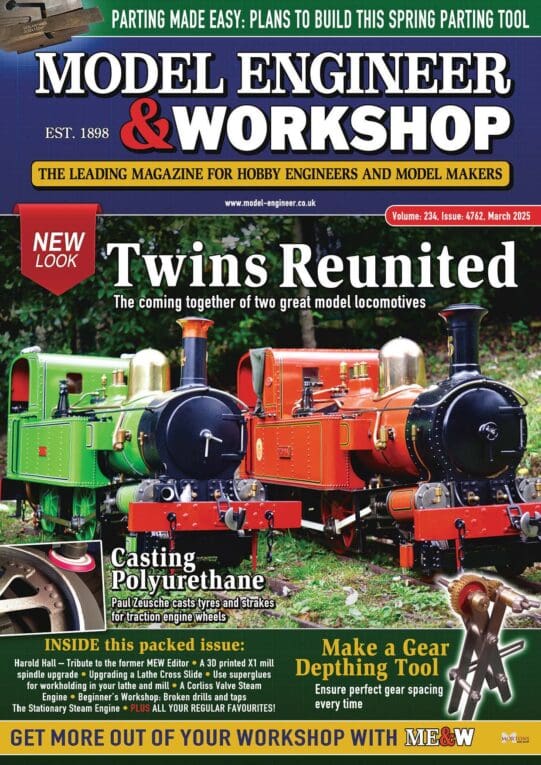Posted by IanT on 15/04/2019 13:32:48:
…
Showing my ignorance perhaps – but I was not aware of the 'Oxygen-free' issue before reading Keith's post. I don't think I've seen this mentioned anywhere in any of the usual texts on the subject. Nor did it come up at the SF Boiler Inspectors Seminar that I attended a year or so ago (at least as far as I can recall – there's certainly nothing in the design notes provided).
…
IanT
It's mentioned in my copy of Wagner's 'A Manual of Chemical Technology', which the 1892 translation of the 13th Edition. It's a treasure trove of facts about Victorian industry.
The book describes 3 processes for refining copper. The Dry Process involves much use of heat and it produces copper that's not very pure, for example 'Mansfield Black Copper' was only about 94% Copper.
But by 1892 most copper was being made by Wet Processes, where Copper was dissolved in Ferric Chloride or Sulphuric Acid, and then precipitated out by adding scrap iron to the liquor. Wet processes produce purer copper than dry and also improve recovery of other valuable metals present in copper ore like Zinc, Lead, Arsenic, Silver, Nickel and Cobalt.
However, both wet and dry processes leave a lot of Copper(I) Oxide in the metal, and 'If this Oxide is present to the extent of 1.1% the metal is so deficient in tenacity and malleability that it cannot be forged at common temperatures without splitting at the edges`. Not unknown back then for commercial copper to contain more than 1.5% oxide, when it was described as 'short' or 'overdone'. A process called 'poling' could reduce the amount of oxide, but it was imperfect, expensive and liable to make the copper brittle due to 'over-poling'.
Impure copper was a serious problem for the electrical industry because tiny impurities cause the resistance of copper to rise by 20% or more. The book describes a new third process in which copper is purified by electricity. As electrolysis is highly effective at removing impurities and recovering valuable trace elements, and it's cheaper, it is – I believe – the only method of refining copper used today.
It must have taken several decades before the last old-fashioned smelter shut down and the last stocks of impure copper were gone. But since about 1940 I think, the memory that commercial copper once had multiple quality issues has pretty much faded.
I suppose it's possible that some recycled copper might be high oxide, but all the copper I've seen sold today is either low oxide or oxygen free.
I think anyone not using antique copper can be confident the material is suitable. No doubt someone will know I'm wrong!
Dave
 JasonB.
JasonB.




